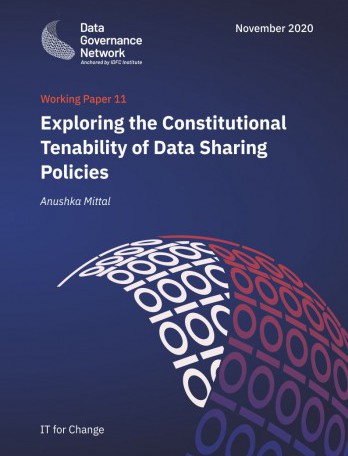

- Data sharing
- Non-Personal Data

- 02 Nov, 2020


Data sharing mandates are being introduced in various jurisdictions to balance the skewed data power in the digital economy and address the ‘data divide’. There is a possibility that these mandates may be challenged by those who view data as private property. In view of this tension, this paper seeks to understand data sharing policies from a constitutional lens. It specifically analyses the data sharing recommendation of India’s Draft Non-Personal Data Committee Report, 2020, using the constitutional principles and objectives enshrined in Article 39 (b) read with Article 31C of the Constitution of India. The paper argues that any future data sharing law must amply justify the involved ‘common good’ to resist any challenge to it. The law should undertake a legitimate reallocation exercise so that data can be made available to all, reclaiming its public good nature. Further, the specific models of Business to Government data sharing being mulled over in various places have been identified. The paper also touches upon provisions of other constitutions, which have a focus on economic objectives, in terms of justifying data sharing laws in the future. The paper concludes by affirming constitutional tenability of such laws to be framed in the future, in India and elsewhere.